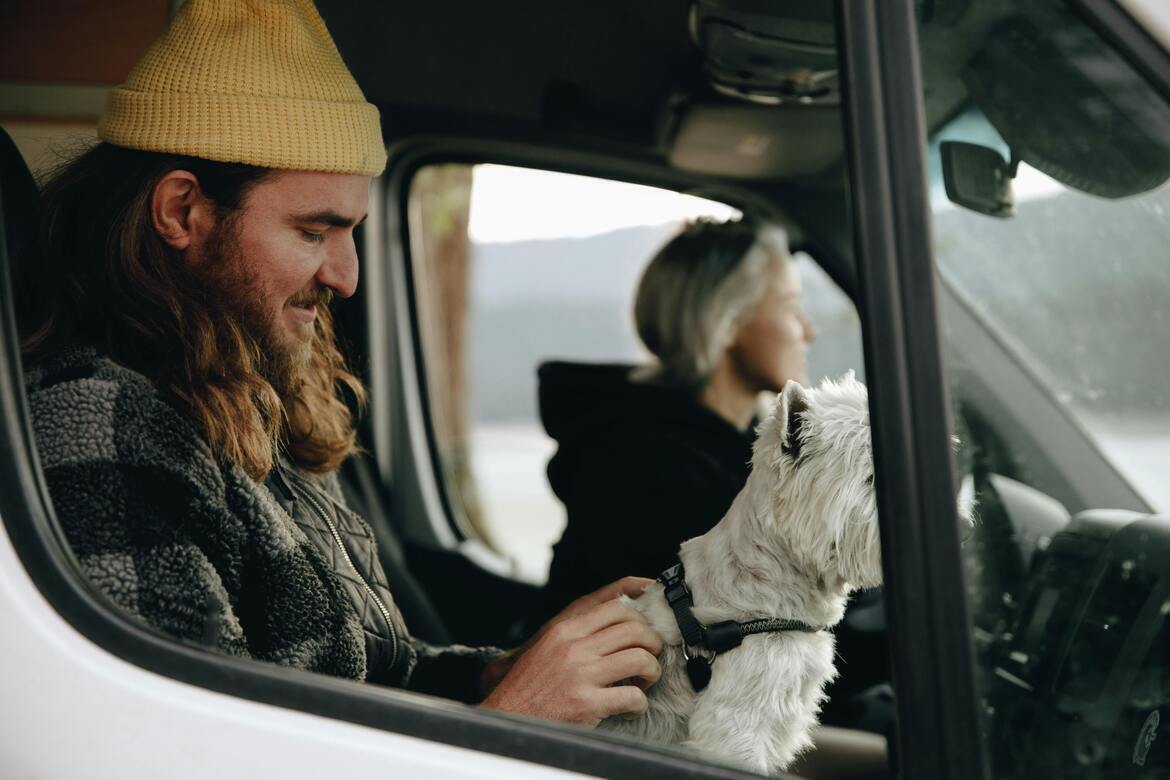You May Be Driving with a Risky Insurance Gap
By Mary Shoemaker, Commercial Lines Manager, and Frank Mercurio, Account Executive
If you drive a vehicle that’s owned or leased by your employer, or you’re a business owner who lists your everyday “personal” car on the company’s commercial auto policy, there’s a good chance you’re not as fully covered as you think.
We see this all the time: smart people with good insurance who still have a blind spot when it comes to coverage. In Michigan, where no-fault rules and Personal Injury Protection (PIP) benefits work differently than in many other states, that blind spot can become an expensive problem.
The good news? There are simple and cost-effective ways to make sure that you are fully insured.
Why a Commercial Auto Policy Isn’t a Substitute for a Personal Policy
A commercial auto policy is designed to insure the company, company-owned vehicles, and company employees driving for business use. It typically covers:
Liability - if you injure someone or damage their property while operating the insured company vehicle
Personal Injury Protection (PIP) Benefits - your medical and related benefits after an auto accident involving the insured company vehicle
Physical damage to the insured company vehicle (comprehensive and collision), if purchased
Here’s the catch: those protections provided on a commercial auto policy do not extend to your spouse, family members or anyone else that is not a scheduled driver for the company, and they do not follow you when you are:
Borrowing a family member’s or friend’s car
Renting a vehicle in your personal name for non-business travel
Riding as a passenger in someone else’s car
Walking or biking as a pedestrian
Common scenarios:
1 - Business owners with vehicles titled in the business name.
You’re a business owner with vehicle(s) titled to your business, no personal vehicles or personal auto policies in your household. Your commercial auto carrier may deny or limit coverage in the event of an accident you are involved in while driving someone else’s vehicle or you are a passenger or a pedestrian.
2 - Company vehicles taken home by employees.
Employers sometimes let staff take a company car home. Your employer’s commercial auto carrier may deny or limit coverage in the event of an accident while you are driving for personal use. Many prudent employers require employees to provide proof of personal auto insurance annually, so the employer isn’t inadvertently on the hook for the employee’s off duty exposures.
3 - Individuals using their personal auto for business.
Personal auto policies often contain exclusions or restrictions for business use. If you’re pulling a commercial trailer, carrying tools and equipment for jobs, making deliveries, or the vehicle is clearly branded or used for business, a personal auto carrier can deny or restrict coverage in the event of an accident.
How to Fix the Gap Without Buying a Second Policy
If a personal policy doesn’t fit your situation, ask your agent about adding two targeted endorsements to your business auto policy:
1 - Drive Other Car (DOC)
DOC extends coverage to you (and typically your spouse) when you’re operating or renting a non-owned vehicle that isn’t listed on your commercial policy. Think: borrowing a neighbor’s car or renting a vehicle in your personal name on vacation.
2 - Broadened PIP (often paired with DOC in Michigan)
Broadened PIP is designed to extend no-fault/PIP benefits to you beyond the single listed company vehicle, covering you as a driver, passenger, or pedestrian in qualifying situations.
A few important notes:
These endorsements are person-specific. Carriers typically allow them for owners/officers (and spouses), not for employees or the whole family.
There’s no one-size-fits-all rule. Any endorsements are subject to pricing and underwriting approval.
In our experience, DOC and Broadened PIP are surprisingly inexpensive, especially relative to the potential medical or liability costs they protect against.
When a Personal Policy Is the Better Answer
There are many cases in which keeping or adding a personal auto policy is a more appropriate solution and provides broader coverage. For example:
You have other household drivers (spouse, teens, e.g.) and/or personal vehicles.
You want coverage to follow you (and family) automatically in most passenger/borrowed/rental situations.
Your commercial policy or carrier won’t approve DOC or Broadened PIP for every person you need to protect.
If you don’t own a vehicle but still want the household protection, ask your insurance agent about a named non-owner personal auto policy. It can provide liability and, in Michigan, PIP benefits for an individual who doesn’t have a car titled to them. This can be a good solution for people who Uber everywhere or simply don’t own a vehicle.
Quick Checklist: How to Get Properly Covered
Tell your insurance agent exactly how you live and drive. Who owns each vehicle? Who drives what? Do you borrow, rent, rideshare, or frequently travel?
Confirm whether a personal auto policy exists in the household. If yes, verify that you’re a named insured or listed driver.
If no personal auto policy exists, ask about DOC and Broadened PIP. Get quotes and confirm who will be covered—usually you and (if applicable) your spouse.
Consider a named non-owner personal policy if you don’t own a car but still want personal protection.
Revisit your auto policy annually—especially after life changes (marriage, teen drivers, new vehicles, or business growth).
Bottom Line for Michigan Drivers
If you drive a company vehicle and don’t have a personal auto policy in your household, you likely have a gap, especially for borrowed/rented cars, passenger situations, and pedestrian injuries. In Michigan’s no-fault system, that can mean going without crucial PIP benefits when you need them most.
The fix is straightforward. Keep a personal auto policy in the household or add Drive Other Car and Broadened PIP endorsements (with carrier approval) to your commercial auto policy. Either way, the cost to close the gap is typically modest compared to the risk.

